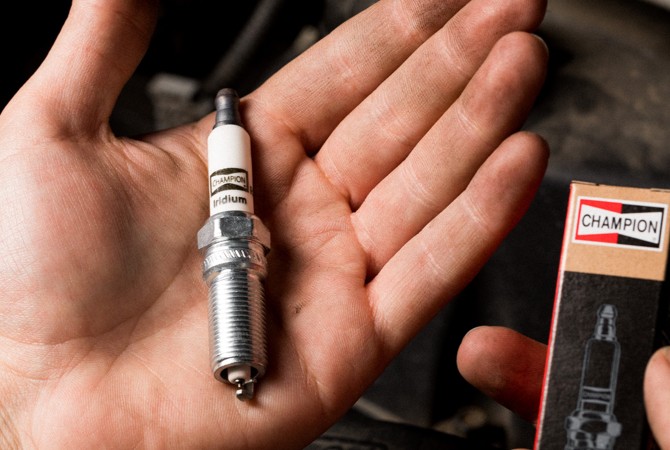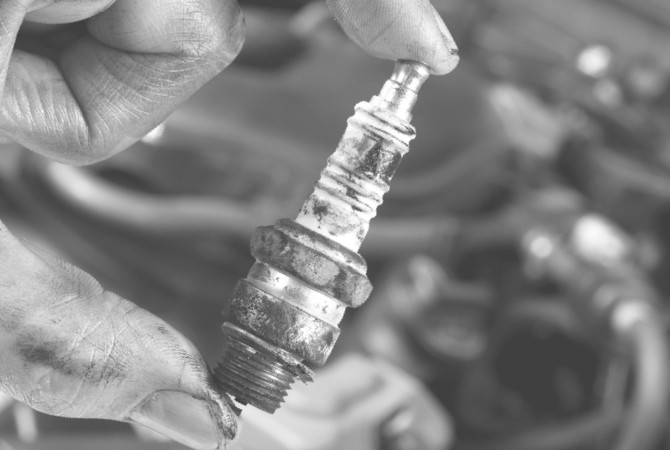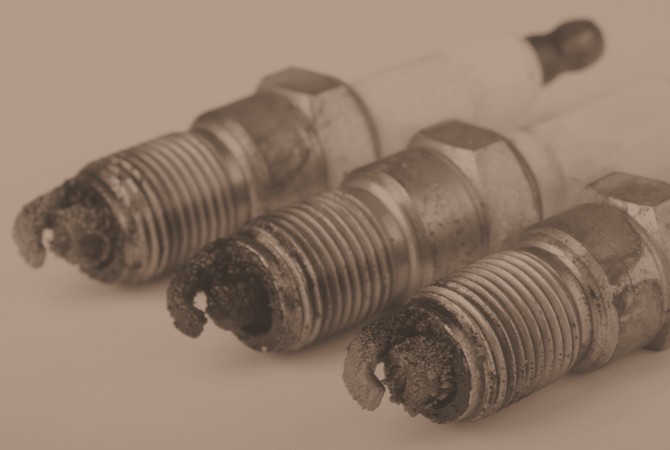Powering Your Engine
As a critical component in a gas-powered vehicle engine, spark plugs provide the spark to ignite the air/fuel combination to start the engine. Spark plugs are connected to the ignition coil which generates the voltage needed to spark the air/fuel and start the combustion process that powers the engine.
To ensure that your vehicle is running on all cylinders, your engine’s spark plugs need to be clean, with no damage to the electrodes. Failing spark plugs can have an adverse effect on the performance of your vehicle, and driving with bad or fouled spark plugs can cause many problems for your engine. You could experience:
Reduced Gas Mileage
Poor Acceleration
Hard Starts
Engine Misfires
Rough Idling
If you recognize any of these symptoms of failing spark plugs, consult your mechanic who will be able to determine if a bad spark plug is the source of your problem. Read on to learn what can cause your spark plugs to fail.

Oil in Combustion Chamber

A leading cause of spark plug problems is a flow of engine oil into the combustion chamber. If oil leaks into the combustion chamber, it can cause the tip of the spark plug to get oily and dirty leading to premature failure. Especially a problem in older vehicles, take notice if your vehicle starts to burn oil, as it can be an indicator that your spark plugs may be damaged, and therefore have a shorter lifespan.
Overheating

Repeated overheating of the spark plug tip can cause the plug to prematurely fail. Overheating can be caused by many things like pre-ignition and a malfunctioning cooling system. Pre-ignition can lead to heat building up in the combustion chamber causing the spark plugs to fail. In addition, if the cooling system isn’t functioning correctly, it can cause the engine and spark plugs to overheat. This overheating can lead to the spark plug’s electrode wearing out faster.
Carbon Buildup

Black, dry soot on the electrodes and insulator tip indicates a carbon-fouled spark plug. This carbon buildup decreases the lifespan of a spark plug and can lead to hard starts, decreased acceleration, engine misfires and the check engine light coming on. Causes of a carbon-fouled spark plug include a dirty air filter, excessive driving at low speeds, too rich of a fuel/air mixture, dirty fuel injectors or idling your vehicle for too long.
Improper Spark Plug Gap

The gap between the spark plug’s center and side electrodes needs to be calibrated perfectly to ensure optimal engine performance. Having the right gap ensures that the arcing occurs at the proper voltage to ignite the fuel and generate the combustion that makes the engine run. If the gap isn’t set correctly, extra stress could be placed on the spark plug tip which could cause it to erode and wear out prematurely.
Learn more about quality spark plugs, find your part, or find where to buy your part today.
The content contained in this article is for informational purposes only and should not be used in lieu of seeking professional advice from a certified technician or mechanic. We encourage you to consult with a certified technician or mechanic if you have specific questions or concerns relating to any of the topics covered herein. Under no circumstances will we be liable for any loss or damage caused by your reliance on any content.